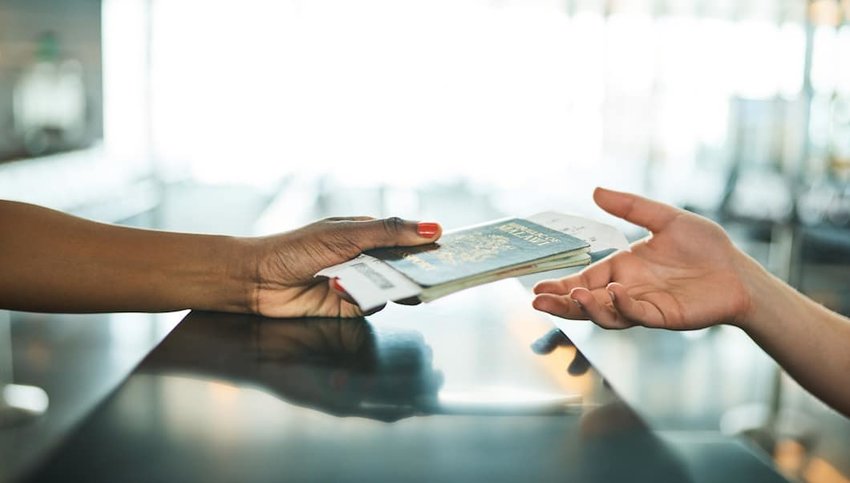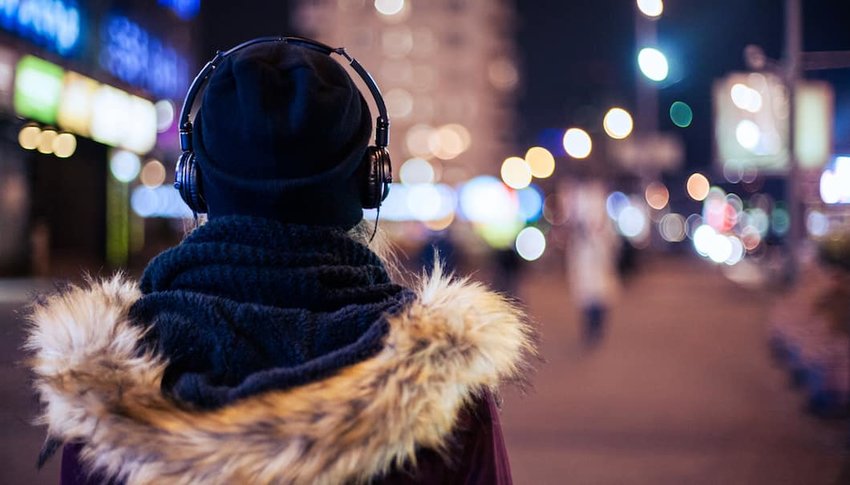There is a well-known quote that says "The difference between an ordeal and an adventure is your attitude." While this is mostly true, there are some occasions when even the best attitude can't help you have a good time. When you're on your first trip abroad, it's easy to get carried away (and you should — it's supposed to be exciting!), but there are some things you have to keep in mind if you want everything to go smoothly. Your first trip abroad should be one of your best ones, so make sure to avoid the following ten mistakes, so you can focus on the most important things.
Mistake #1: Not Packing a Travel Power Adapter
When most people travel, they remember to bring the cords to charge their phones, tablets, and laptops. What they might not consider, though, is that many of these cords will not work in power outlets outside of the United States. Many countries have their own type of power outlet, and they can differ even within the same continent (Italy's round-pronged plugs, for example, are much different than the triangular ones in the UK). If you want your cords to work then you're abroad, you will have to buy travel adapters. Luckily, though, you can get them pretty cheap. (I bought six for just a few dollars on eBay the first time I traveled to Italy!)
Mistake #2: Not Checking the Voltage
Just as it is a mistake to try to plug an American plug into a foreign electrical socket, it is also a mistake to not check the voltage level of the country you are staying in. In the U.S., most electronics and appliances typically run on 110 volts. In Europe, though, the voltage is much higher. The best way I have found to avoid blowing up your appliances with all that extra electricity is to buy dual-voltage appliances for your trip. They usually cost the same amount but they will work in either type of socket. If you don't want to buy all-new devices, you could invest in a power converter from Amazon, which will decrease the voltage coming into your appliance. Keep in mind that your phone and computer should be fine, but check the voltage before plugging them in, just in case.
Mistake #3: Forgetting/Losing Your Passport

Credit: PeopleImages/iStock
It's a given that you will need your passport at the airport to get through security, but you may also need it when riding trains or if you get into some trouble abroad. It is the most important form of identification you have while you are traveling, so be sure to keep it in a place where you can easily get to it. If you are a light traveler or are worried about it falling out of your pocket or purse, you can actually get a special scarf where you can zip the passport into a pocket and hang it around your neck. That way you are both prepared and stylish!
Mistake #4: Not Bringing the Right Shoes
Aside from your passport, shoes are the one thing you can't get by without on a big trip. You might be tempted to wear your cutest high heels or your fanciest dress shoes, but these won't do you any good when you are trekking up mountains or running through the airport. You can bring your nice shoes for special occasions, but for the majority of your trip, you are going to need a good, sturdy pair of walking shoes with good arch support. Otherwise, your trip will be plagued with back pain and sore knees. Ouch.
Mistake #5: Assuming That Everyone Everywhere Speaks English

Credit: SensorSpot/iStock
This is a common stereotype: many travelers think that if they speak English loudly enough, everyone will understand them abroad. There is a tendency for us to believe that English is universal and that we don't need to learn any phrases in the language of the country we will be visiting. If you are traveling to a foreign country, you should at least learn how to ask for directions, how to say hello and goodbye, and how to say please and thank you. Even if you don't say these things with the proper accent, you will most likely be understood, and the locals will be happy that you made the effort, making them more likely to help you.
Mistake #6: Not Checking to See if Your Phone Will Work Abroad
Just as some of your electronics will not work abroad, chances are high that your phone plan won't work there either. You will need your phone to call home, act as your GPS or just in case of emergencies, so it is important to plan ahead. You can either get a new SIM card when you arrive in the foreign country, or you can invest in a wifi hotspot and use internet-based apps for communication and maps.
Mistake #7: Not Having The Correct Currency
Unfortunately, the mighty U.S. dollar will not work in most other countries. If you want to spend any money abroad, you will have to do a currency exchange or get money out of a local ATM. Keep in mind, though, that most of these will have a fee involved, so it is best to save up a little extra money beforehand just in case. There are currency exchange counters at most international airports, or you can go into a bank and see if they have a lower fee. Be sure to carry enough local currency for an emergency, but not enough to make it a huge loss if you get pickpocketed in a crowded tourist area.
Mistake #8: Going Rogue When Booking Your Flight
If you are taking an international flight, you will most likely be making a few stops before you get to your destination. One of the biggest mistakes you can make when booking a flight is to book each leg of the flight yourself, instead of booking the entire ticket through the same airline. If you book a ticket with United Airlines, for example, United Airlines will make sure that your connecting flights are a reasonable distance apart, and will get you on another plane if one of them is delayed, canceled or missed (within reason). If you book each leg of the flight through a different airline, however, you don't have this safety net. If your United flight makes you late for your Southwest flight, United will not be responsible for putting you on another flight. While you might save a bit of money booking each flight separately, it is safer to get a ticket through a single airline.
Mistake #9: Not Being Safe

Credit: inwal/iStock
Speaking of being safe, the most important thing to think about during a trip to a new place is your safety. This safety can range from getting the proper locks for your luggage so that your things don't get lost or stolen in transit to having maps and a usable phone so that you don't get lost in a strange city. You should also be sure to avoid going into dark or deserted places alone, and to never go anywhere alone with someone you have never met. It is also a good idea to learn the phone numbers of the local police and other emergency services, just in case. Most people are nice, but you should still use your common sense so that your first trip doesn't turn into something you will regret.
Mistake #10: Letting Mistakes Ruin Your Trip
Now that you have seen all the ways to avoid making mistakes on your first trip, it is time to tell you a secret — there will probably be mistakes anyway. All travel usually has an element of chaos, and expecting that everything will go perfectly and smoothly all the time is the biggest mistake you can make. Things will go wrong — you might forget something, you might lose something, or something might happen that is completely out of your control, like your flight being delayed or your train being canceled. The trick is not to let this get you down. Just like I said at the beginning: the difference between an adventure and an ordeal is how you treat it. If something goes wrong, try your best to stay calm and figure out a way to fix it. Embrace the fact that you can't always control anything, and have a great time anyway!